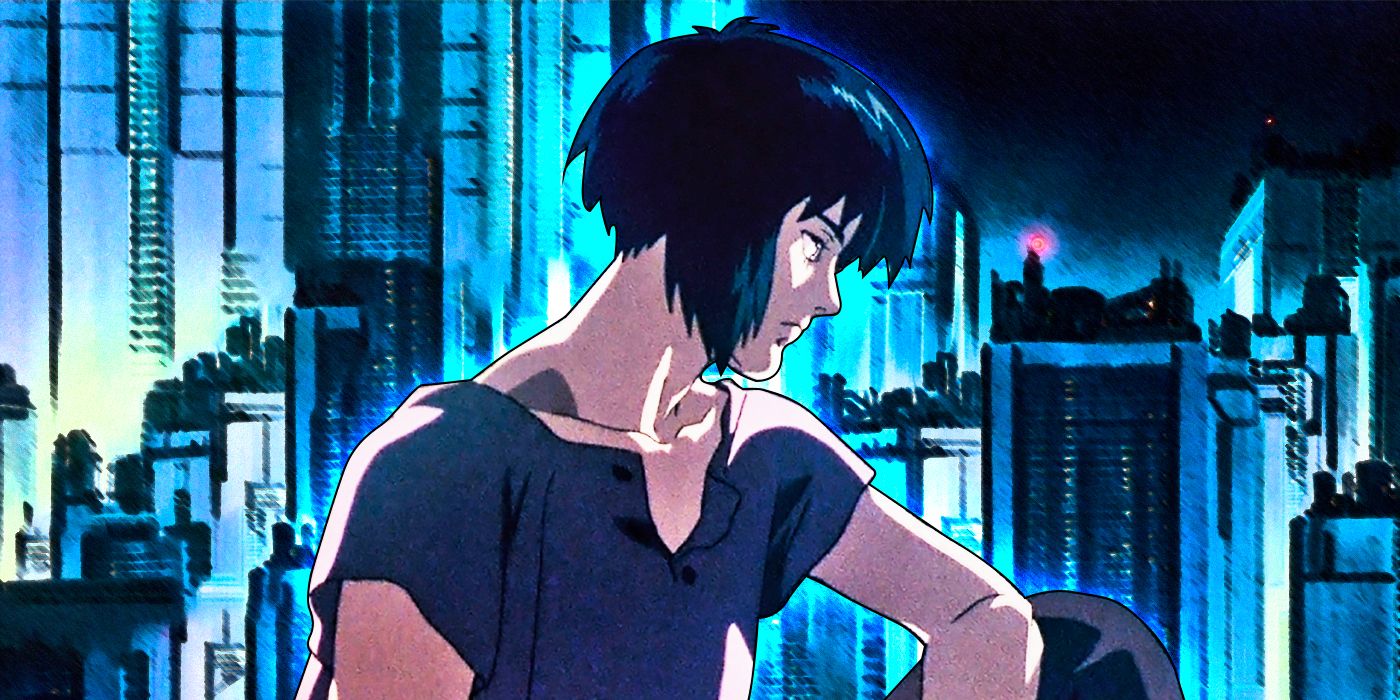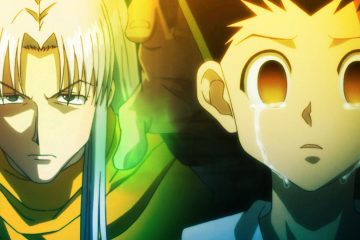Science fiction as a genre is one of limitless possibilities. It pries open the shell of humanity and proceeds to remove its innards, inspecting each and every organ through the lenses of dreamed impossibility and hopeful surrealism. The dreams and ideas of antiquity are displayed as reality, as the ideas and thoughts once believed to be nothing more than the conjecture of idealists and the absurd are crafted into tangible artifices of the unshaped future. Space travel, digital neural interfacing, gene editing — there is nothing that science fiction has not placed upon its pedestal of possibilities. For anime, science fiction comes as naturally as breathing. The horrors of the nuclear age left an indelible impact on the country of Japan, one that gave birth to entire sub-genres of science fiction, both as pleasure and as poignant cautionary tales. Of all the works of science fiction in anime, few have reached the heights of Ghost in the Shell, an intricate and deftly-woven cyberpunk series that seamlessly blends hard-hitting action, profound philosophy, and cutting-edge animation techniques.Ghost in the Shell was originally created by Masamune Shirow and published in 1989 in Kodansha’s Young Magazine. Set during the 21st century in the fictitious city of Niihama, Japan (“New Port City”), Ghost in the Shell introduces readers to a cluttered cyberpunk metropolis packed with action, espionage, and ruthless criminals. Combating the relentless waves of crime was Public Security Section 9, an elite task force equipped to shut down any and all cyberterrorism threats with zero tolerance. Major Motoko Kusanagi, Section 9’s leading officer, found herself toe to toe with an endless array of cyber criminals, both physical and digital. More than just raw gunfights and future action, Ghost in the Shell was a contemplative series that explored the themes of human identity, omnipresent government overreach, the overuse and overreliance on technology, and the perils of the integration of biological and technological existences.The allure of Ghost in the Shell lies within the entire experience that it offers viewers. Production I.G.’s animation is deliciously smooth and fluid, blending dazzling futurism and gritty nihilism. Kusanagi as a character is so much more than a pretty face with a gun. She is the incarnation of the existentialist quandary that exists at the center of the tale. As a bio-cybernetic being, Kusanagi questions her existence as a sentient being. The relationship that she shares with the Puppet Master is rooted in the true definition of artificial life and the very foundation of what constitutes a soul. As the lines between true organic life and artificially manufactured sentience become further blurred with every day, the distinction between human, machine, and the marriage of circuitry and flesh marches humanity ever closer to the advent of a brand-new human construct. Ghost in the Shell is an amalgamation of futurist existentialism, neo-noir action, and cautionary cyberpunk tropes.
Science fiction as a genre is one of limitless possibilities. It pries open the shell of humanity and proceeds to remove its innards, inspecting each and every organ through the lenses of dreamed impossibility and hopeful surrealism. The dreams and ideas of antiquity are displayed as reality, as the ideas and thoughts once believed to be nothing more than the conjecture of idealists and the absurd are crafted into tangible artifices of the unshaped future. Space travel, digital neural interfacing, gene editing — there is nothing that science fiction has not placed upon its pedestal of possibilities. For anime, science fiction comes as naturally as breathing. The horrors of the nuclear age left an indelible impact on the country of Japan, one that gave birth to entire sub-genres of science fiction, both as pleasure and as poignant cautionary tales. Of all the works of science fiction in anime, few have reached the heights of Ghost in the Shell, an intricate and deftly-woven cyberpunk series that seamlessly blends hard-hitting action, profound philosophy, and cutting-edge animation techniques.
Ghost in the Shell was originally created by Masamune Shirow and published in 1989 in Kodansha’s Young Magazine. Set during the 21st century in the fictitious city of Niihama, Japan (“New Port City”), Ghost in the Shell introduces readers to a cluttered cyberpunk metropolis packed with action, espionage, and ruthless criminals. Combating the relentless waves of crime was Public Security Section 9, an elite task force equipped to shut down any and all cyberterrorism threats with zero tolerance. Major Motoko Kusanagi, Section 9’s leading officer, found herself toe to toe with an endless array of cyber criminals, both physical and digital. More than just raw gunfights and future action, Ghost in the Shell was a contemplative series that explored the themes of human identity, omnipresent government overreach, the overuse and overreliance on technology, and the perils of the integration of biological and technological existences.
The allure of Ghost in the Shell lies within the entire experience that it offers viewers. Production I.G.’s animation is deliciously smooth and fluid, blending dazzling futurism and gritty nihilism. Kusanagi as a character is so much more than a pretty face with a gun. She is the incarnation of the existentialist quandary that exists at the center of the tale. As a bio-cybernetic being, Kusanagi questions her existence as a sentient being. The relationship that she shares with the Puppet Master is rooted in the true definition of artificial life and the very foundation of what constitutes a soul. As the lines between true organic life and artificially manufactured sentience become further blurred with every day, the distinction between human, machine, and the marriage of circuitry and flesh marches humanity ever closer to the advent of a brand-new human construct. Ghost in the Shell is an amalgamation of futurist existentialism, neo-noir action, and cautionary cyberpunk tropes.
#Ghost #Shell #Animes #Greatest #Sci #Series #Explained
Note:- (Not all news on the site expresses the point of view of the site, but we transmit this news automatically and translate it through programmatic technology on the site and not from a human editor. The content is auto-generated from a syndicated feed.))



